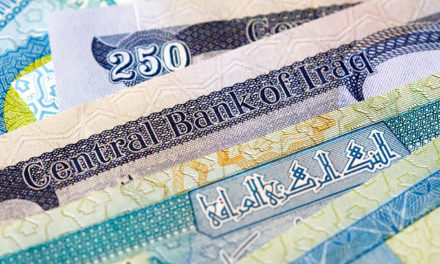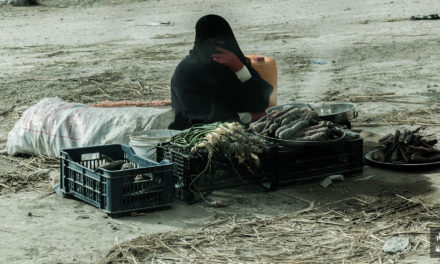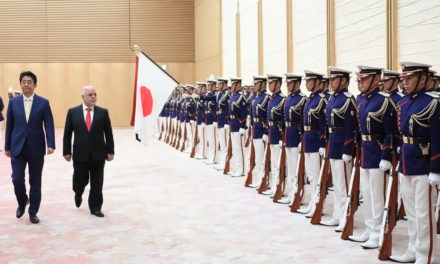With oil prices hitting new lows of USD34 per barrel in 2016, Iraq’s fiscal budget and economy will continue to face challenges as the country stands on the periphery of a financial crisis. This is not eased with the continued costly fight against Daesh/ISIL. Whilst this strain opens up opportunity for economic reform, the Iraqi public and their government will need to prove their commitment to building a better future and their resilience to both a financial and sustained security crisis.
The obvious saviour for Iraq’s sorrows would be a rebound in global oil prices. However, the reality of this seems unlikely in 2016. With sanctions to be lifted from Iran and Iranian crude waiting in storage to flood the market, global oil supply is likely to remain in excess of demand. This is in addition to promises from Iran to ramp up export levels once given the green light, with a sudden increase of 500k barrels per day (“bpd”) and an additional 1 million bpd to be added within a year. Globally storage tanks are approaching full capacity, which will also add to the glut in oil demand to an already oversupplied market.
Whilst not only does the removal of sanctions on Iran pose a problem to Iraq through oil prices, an equally important concern is that foreign investors with a risk appetite high enough for Iraq, are likely to now shift their focus to more attractive opportunities across the border. A stable security situation, a few less layers of bureaucracy and the ‘new and shiny’ appeal of the market, collectively add up to Iran being a ‘safer’ and more enticing investment. This not only will reduce the level of foreign direct investment (“FDI”) in Iraq but is also likely to contribute to an increase in the cost of foreign financing for the country. Investment trickling down through Iran and into Iraq will be slow, minimal and unlikely to be anything more substantial than current levels.
With the approved 2016 budget forecasting a deficit USD20bn (arguably a very modest figure given the budget assumptions)(1), Baghdad will need to tap into the bond market and seek as much assistance as possible from multilateral agencies such as the International Monetary Fund (“IMF”) and World Bank. The World Bank has already pledged USD1.2bn in emergency funding loans whilst the IMF is to also lend a sizeable amount, which is yet to be confirmed. Iraq agreed in late 2015 to participate in the IMF monitoring programme where the agency will observe and track Iraq’s economic policies.
A crucial pillar to Iraq’s economic stability is the country’s foreign exchange reserves, which were estimated to stand at USD60bn by the end of 2015. These should not be used to fund the government deficit but rather the Iraqi government should approach lenders and find new sources of financing. Eroding away foreign exchange reserves will certainly lead to Iraq setting down a path of economic deterioration with a weak Central Bank and unstable currency.
Baghdad’s attempt to launch an international bond in 2015 may seem like a failure but productive milestones were met with the country receiving its first sovereign credit rating. The ratings (B-/B-/Caa1:Fitch/S&P/Moody’s) which lay six and seven notches below investment grade, provide a tangible measure of how Iraq can improve its appeal to lenders and investors. By addressing the key concerns behind the ratings, Iraq can attract lower cost financing, easing the debt burden on future budgets. The key issues credit rating agencies had were: dependency on oil revenue, oil price volatility, the ongoing security threat from ISIL, outstanding unaddressed debts from the Iran-Iraq war, a weak and undeveloped banking sector as well as bureaucracy and corruption polluting the state and its institutions. Iraq is to issue USD2bn in an international bond issuance in 2016, with the World Bank providing guarantees for up to half the amount.
Privatisation of dormant or inefficient state owned enterprise (“SOE”) which have long been a burden on the federal balance sheet, seems to be an obvious method to raise capital or at the very minimum reduce state losses. With more scrutiny from its shareholders, SOEs will be pressured to operate in a more profitable manner, which will not only increase efficiency in Iraq’s economy but also push Iraqis to change their working habits for the better. Privatisation efforts will fall nicely inline with the IMF programme for Iraq and compliancy to IMF and World Bank recommendations will ease Iraq’s ability to secure additional funding from the agencies in future.
A reliance on borrowing to raise capital could be detrimental to the country in future, which is why the state must focus its efforts to raising capital through other means. Within the telecoms space, key steps have been taken to raise non-borrowed capital such as the 20% tax imposed on mobile phone users for top up services and postpaid bills as well as the plans to sell a fourth mobile telecoms license to a new operator.
Reducing unnecessary state expenditure is another key way to fight through the economic struggle the country faces. Removal of subsidies has always been a sensitive subject within the Middle East but subsidies do not need to be exclusive to fuel (albeit a low oil price environment is the best time to phase in fuel subsidy reforms which are another favorite for the IMF and World Bank).The Public Distribution System (“PDS”), food rationing card system which provides subsidised soft commodity foods (rice, flour, sugar, vegetable oil, milk) to the majority of Iraqi households, is a key area for reform and has been vulnerable to graft in the past. Whilst the programme encourages the purchase of Iraqi produced foods, the majority of the distributions are imported. Imposing stricter eligibility criteria for the programme could save the country up to USD5bn a year. In addition, the quantity allocated per household should be reviewed given that subsidised levels are in excess of average consumption figures.
Layoffs within government offices and SOE stands as an overdue move to trim down on the very bloated public sector. This large portion of the labour force employed by the state is not only an immediate direct cost now, but also generates a heavier state pension obligation in the future. Whilst layoffs and salary reviews have already begun, some SOE have warned employees that a ‘mandatory unpaid leave’ may be imposed on them, essentially putting them into part time employment. This may encourage Iraqis to seek more lucrative opportunities in the private sector, however such opportunities will not provide as comfortable state pensions upon retirement. Pension reforms also serve as a large opportunity for current and future savings, especially on Iraqi nationals living abroad, who enjoy the benefits from two social security systems.
With much of these economic reforms being absorbed by the average Iraqi citizen, if tangible improvements in services are not observed in the short term, a threat of civil unrest could be unleashed especially given the patience of the Iraqi public in its peaceful protests last summer. Iraqis have a strong sense of entitlement given the high levels of corruption they have seen within government and a lack of improvement to basic services. Key to endure these hard economic times, is a sense of national unity to form between the public and state. Prime Minister Haider al-Abadi’s announcement of reform plans during the summer demonstrated this, but materialisation and retribution on corrupt government officials are crucial to strengthen and keep this spirit alive.
When it comes to developing key national projects vital for the country’s infrastructure, there is an imperative need to explore new financial structures that will help attract alternative financing sources for projects. Recent examples of project plans being funded by the private sector have taken place within the power space through the Independent Power Project scheme, as well as the recent announcement for phase 1 of the USD1.4bn Faw port project to have a Public Private Partnership structure.
Within the region, infrastructure projects have leaned towards domestic banks for financing, particularly in the GCC. However, Iraq’s domestic banks lack the financial capacity to take on a similar role. The state dominated banking sector has traditionally relied on heavy, significant deposits from SOE to keep their balance sheets’ strong. These same deposits are usually related to the oil industry and given the current climate, it is expected that they have shrunk significantly. Iraqi banks and the Ministry of Finance must encourage and create incentives for the Iraqi public to deposit their cash into banks. Domestic banks should focus on lending to the private sector to encourage its development, which will in turn take on additional responsibilities currently assumed by the state, such as the provision of employment.
Transitioning out of a cash based economy will increase the country’s economic efficiency, utilizing idle funds and putting them to use which will encourage growth. In the fight against long term corruption a solid banking system will heighten the level of transparency within the country, increasing accountability.
With an expanding private sector and a reduction in imports, organic economic growth will be crucial in sustaining employment rates if significant layoffs within the public sector occur. These new business opportunities, which will cater for Iraq’s domestic demand, will also encourage FDI. A population of 37 million makes Iraq a key consumer market within the MENA region.
Long term-prudent planning is crucial for Iraq, in preparation for the next drop in oil price or in expectation of continued low prices for the medium term (which can be assumed given Saudi’s extensive reform announcements). As such, amending oil contracts with International Oil Companies (“IOCs”) and putting in place mechanisms for lower prices, is key to keep this major industry afloat. Paving the way for a more vibrant and solid private sector comes at an absolute priority and using innovative techniques to try form a sovereign wealth fund would provide the foundation for a stable economy.
Times are tough and the current is flowing against Iraq. A national movement between politics and people, encouraging the nation to endure austerity measures and change mindsets, will allow Iraq to ride through the storm and stand stronger in the face of future disruption. It is now up to Iraqis and their government to prove that they are capable of this.
The 2016 budget assumes an average oil price of USD45 per barrel with exports at 3.6M barrels per day (including 550k barrels per day from the KRG, as per the December 2014 oil export agreement)
Ammar Al-Diwani is a banking professional specialising within the oil and gas sector, covering the Middle East and Africa for an international bank. He also has additional experience within Project and Infrastructure Financing as well as Financial Institution credit risk. He holds a Bachelor’s degree in Civil Engineering from the University of Warwick, UK.
Disclaimer:
This piece is a personal reflection of the writer’s opinion and is by no means associated with their employer.










